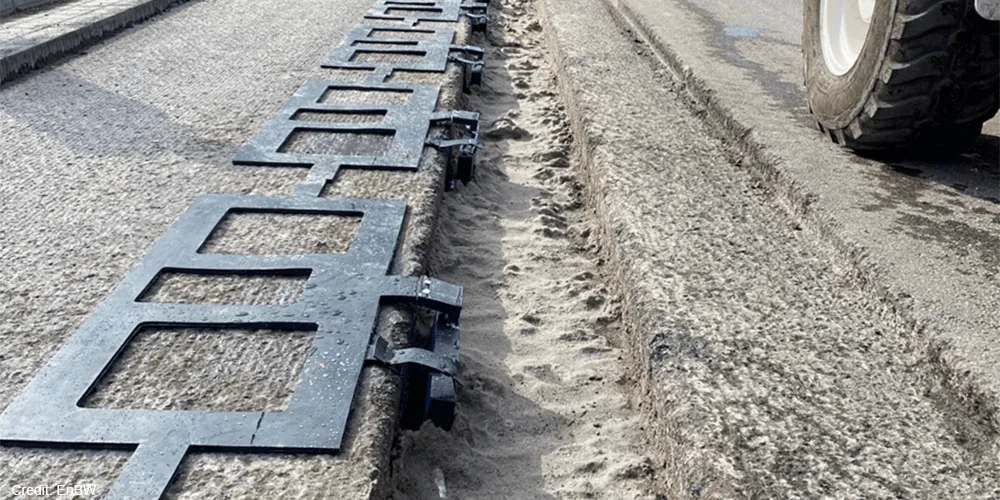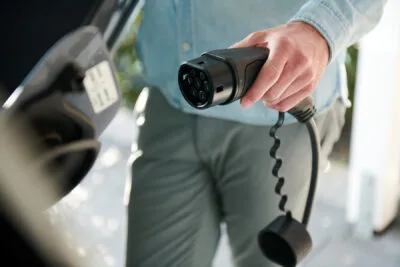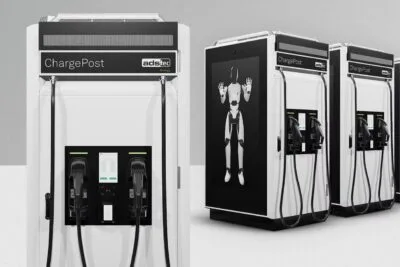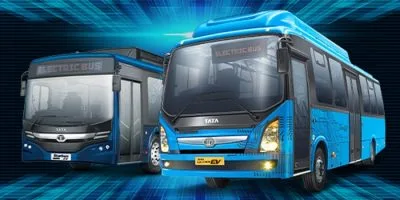Mobile inductive charging project takes off in Germany
In Balingen, dynamic wireless charging technology for electric vehicles is being tested in practice for the first time in Germany. The leading actor of the pilot project is a shuttle bus for the Garden Show 2023, which is to charge its vehicle battery while driving.
++ This article has been updated; please continue reading below. ++
The Israeli company ElectReon, which specialises in inductive charging of e-vehicles, will set up an initially 400-metre-long Electric Road System (ERS) under the asphalt for the project, as well as two inductive stationary charging stations. In a later phase of the project, it is planned to extend the appropriately prepared road section to one kilometre. In addition to Electreon Germany, the project partners are EnBW, the Karlsruhe Institute of Technology (KIT) and Stadtwerke Balingen. The entire project is also under the auspices of the German Aerospace Center (DLR) and operates under the title ELINA (Einsatz dynamischer Ladeinfrastruktur im ÖPNV).
The shuttle bus route for the Garden Show leads from the car park on the exhibition grounds to the city hall bus stop. According to a statement by EnBW, the dynamic charging process will take place in Wilhelmstraße. There, the magnetic coils are inserted under the roadway. “When the bus approaches this point, high-frequency magnetic fields are generated. These induce an electric current in receiver coils on the bus floor, which is used to charge the battery,” EnBW describes the charging process.
Inductive stops are also planned at the final stops city hall ‘Stadthalle’ and the exhibition centre ‘Messegelände’ – but the bus will charge there while stationary. In the aforementioned second stage, those responsible for the project want to equip other routes in the Heimlichenwasen and front of the Lauwasen school with magnetic coils – thus extending the Electric Road System to one kilometre. In addition, another inductive stop is to be set up in the bus depot, thus developing the project into regular service.
While ElectReon provides its Dynamic Wireless Power Transfer (DWPT) technology, KIT contributes a planning tool that optimally coordinates the route of the line and the locations of the charging stations. “The software combines traffic modelling, vehicle simulation and optimisation of the charging infrastructure,” specifies Markus Tesar from KIT. “Our goal in the course of the ELINA project is to validate the new planning tool with data from real operations in Balingen.”
Meanwhile, Stadtwerke Balingen is taking care of the operation of the electric bus, and EnBW is managing the project and setting up and operating the charging infrastructure. “The project in Balingen shows how innovatively and consistently we are promoting e-mobility in Germany. We have a holistic approach and want to make wireless charging technically fit for German public transport. This also includes convincing authorities, energy network operators, bus operators, and the general public of the opportunities,” emphasises Alexander Pöllauer from EnBW’s Research and Development division, who is leading the trial.
According to ElectReon, this is not the first pilot test of DWPT technology in Germany. The Balingen project follows a successful pilot project with Electreon technology in the city of Karlsruhe in cooperation with EnBW; the company says in its statement: “An electrified road was installed at the EnBW training centre, which supplies a public bus with electricity at peak times.
ElectReon and the road construction company Eurovia are planning another project in Germany. Specifically, it is a project funded by the German government called E|MPOWER. This project started in July 2022 and aimed to integrate ElectReon’s technology on a one-kilometre motorway section in northern Bavaria.
For now, however, the focus is set on Balingen. Within the framework of this project, Electreon says it will receive up to 3.2 million euros for its part in the project.
Update 05 May 2023
With the opening of the Garden Show in Balingen, an electric shuttle bus has hit the paths and charges inductively while in motion and waiting at stops. As energy partner EnBW informs, induction coils can now be found along a 400-metre stretch of Wilhelmstraße described above. With the wireless charging systems at the two stops, more than 240 magnetic coils were installed during construction, which lasted several weeks.
The next stage will see a second induction track being laid, measuring around 600 metres bringing the total length to one kilometre. The route will be activated at the end of the Garden Show. The electric bus will serve regular public transport on several Balingen routes.
With reporting by Cora Werwitzke and Sebastian Schaal, Germany.
enbw.com (in German), businesswire.com, enbw.com (update May ’23, in German)





0 Comments